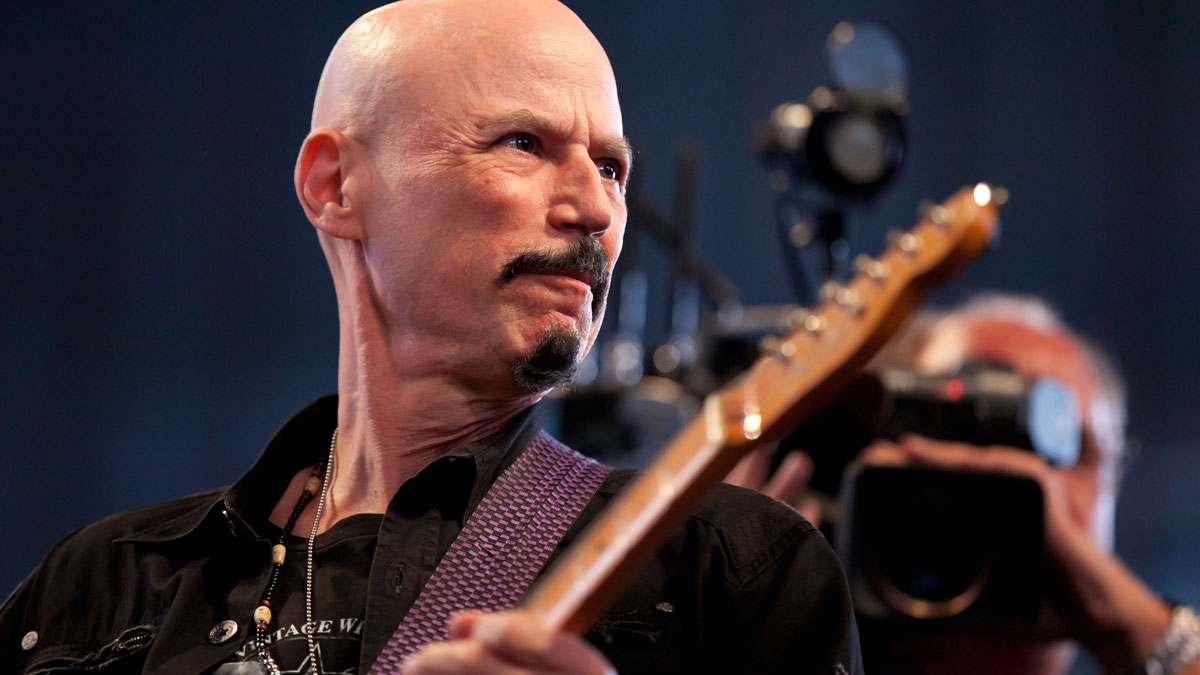Kiss, Meat Loaf and W.A.S.P. guitarist Bob Kulick dies aged 70
Brother and fellow guitar player Bruce Kulick confirms the news

Bob Kulick, guitarist for Kiss, Meat Loaf and W.A.S.P. amongst others, has died aged 70.
His younger brother and fellow guitarist Bruce Kulick confirmed the news on Instagram, writing, “I am heartbroken to have to share the news of the passing of my brother Bob Kulick. His love of music, and his talent as a musician and producer should always be celebrated.
“I know he is at peace now, with my parents playing his guitar as loud as possible. Please respect the Kulick Family’s privacy during this sad time.”
A cause of death has yet to be announced.
Kulick auditioned for a then-fledgling Kiss in 1972, and although he lost out to Ace Frehley, his guitar work appears - albeit uncredited - on four Kiss albums: Alive II, Unmasked, Killers and Creatures of Night. He also played on Paul Stanley’s 1978 solo album and 1989 tour.
Kulick racked up a number of credits with artists across the musical spectrum, including Lou Reed’s Coney Island Baby, Meat Loaf’s Bad Attitude and touring band, Michael Bolton’s 1983 self-titled album, and several Diana Ross releases.
He also performed on W.A.S.P.’s The Crimson Idol and Still Not Black Enough, and formed the groups Balance and Skull.
Get The Pick Newsletter
All the latest guitar news, interviews, lessons, reviews, deals and more, direct to your inbox!
In later years, Kulick became known for his production work, particularly on Motörhead's 2004 album Whiplash, which won a Grammy Award for Best Metal Performance, and wrote, recorded and produced the song Sweet Victory for SpongeBob SquarePants.
Kiss issued a statement on Twitter, which reads, “We are heartbroken. Our deepest condolences to the Kulick family in this difficult time.”
Gus G also paid tribute, stating, “R.I.P. Bob Kulick. I had the pleasure of working with him on a Randy Rhoads tribute album a few years back. My condolences to his family and loved ones.”
In 2016, Kulick told Classic Rock Revisited, “[Fans] come up me all the time: ‘My name is blah, and I play guitar in a band, and learned to play because of your solo in Larger Than Life.’
“That’s kind of shocking, numbing. You didn’t think that would be what happened when you do something like that. It’s a pleasant shock. It’s what you hope for, that your effort would do something good and motivate someone. If everyone gets that way about everything, when people say this, they will strive to be the best person they can be, things would be much better.
“That’s what I aim to say in music: try to be the best you can be. It’s a commendable thing and the ego part and all this stuff is not necessary and is secondary to what the real gift is, to have a means to communicate with people on a level like that.”

Mike is Editor-in-Chief of GuitarWorld.com, in addition to being an offset fiend and recovering pedal addict. He has a master's degree in journalism from Cardiff University, and over a decade's experience writing and editing for guitar publications including MusicRadar, Total Guitar and Guitarist, as well as 20 years of recording and live experience in original and function bands. During his career, he has interviewed the likes of John Frusciante, Chris Cornell, Tom Morello, Matt Bellamy, Kirk Hammett, Jerry Cantrell, Joe Satriani, Tom DeLonge, Ed O'Brien, Polyphia, Tosin Abasi, Yvette Young and many more. In his free time, you'll find him making progressive instrumental rock under the nom de plume Maebe.









